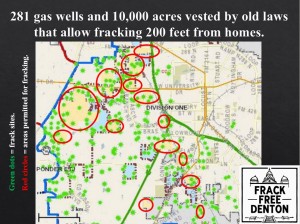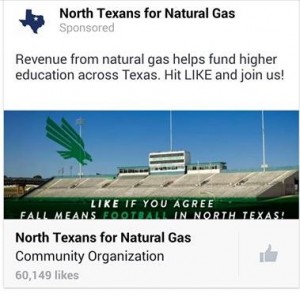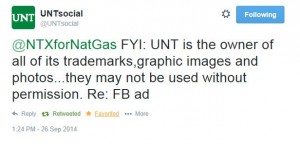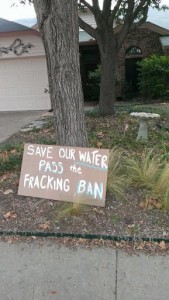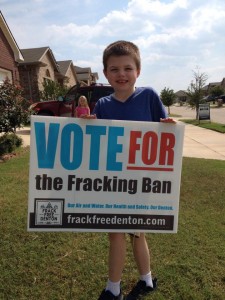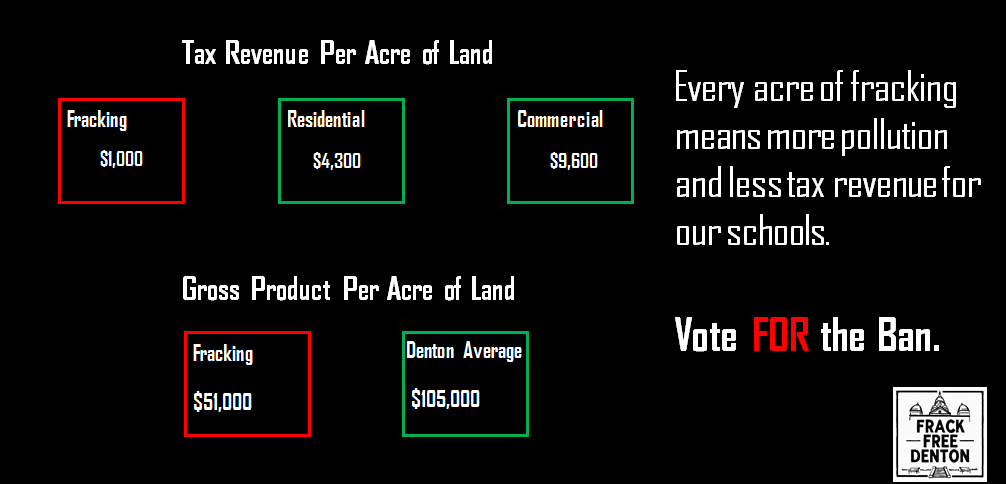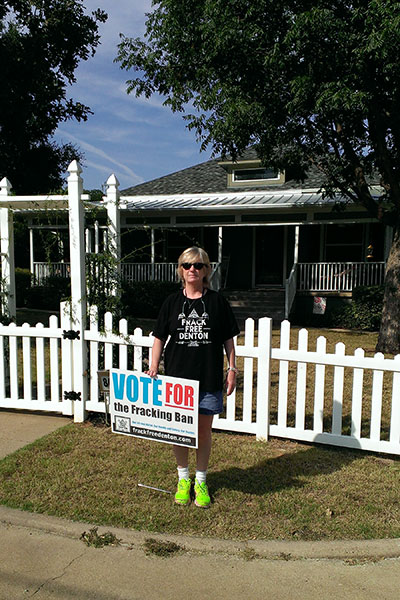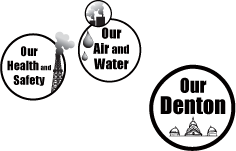In a recent mailer, the industry stooped to a new low by claiming that fracking is good for Denton’s children.
Today, a report was released showing benzene emissions from a frack site in Denton right next to homes and a playground. Here’s the cover of the report.
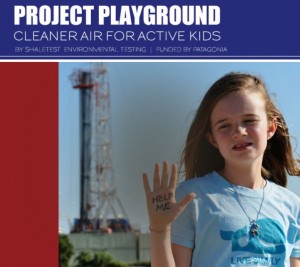
Chronic exposure to carcinogens is supposed to be good for kids?! What about the blowout hazards? The contamination of water? The smog-forming ozone emissions?
No, they say that all the money this makes for our schools is worth these health and safety costs.
The mailer notes that oil and gas contributed $1.26 billion to the Permanent School Fund last fiscal year. There are 304,000 active oil and gas wells in Texas. Clearly, oil wells will produce more revenue for this fund than natural gas wells – Denton doesn’t have oil wells. But let’s assume all wells produce the same returns. That would be $4,144 per well to this fund. That would mean Denton’s 281 gas wells contribute $1.16 million to the fund.
Now even after the ban, Denton’s gas wells will continue in production. Drilling, but not fracking, will still occur. It’s hard to say how that will all work out in the future. But let’s take an extreme scenario and assume that lost revenue from fracking after the ban will be equivalent to shutting down all of our wells. Again, that’s extreme and it won’t happen…but let’s give them the benefit of the doubt to help inflate their numbers.
So, assume we lose that $1.16 million contribution to the state fund annually. That fund pays out on its interest, which is about 10%. So, that’s $116,000. Now, that loss would be spread across the state’s 5 million school children. That amounts to an annual hit of 2 cents per student. The entire cost to DISD would be $540.
Ok, so on this mailer they are insinuating that toxic industrial sites near our homes and parks is worth 2 cents per student. For two cents, we should allow this uniquely toxic and secretive industry everywhere (when we regulate bakeries more stringently).
So that giant letter about the Permanent School Fund has nothing to do with the fracking ban.
If oil and gas is such a windfall for our schools, why does Texas rank 49th in the country on per-student spending? If this boom is such a big deal, why has state funding DECREASED over the past two years by $1,000 per-student? And did you know that the two leaders of the opposition to the ban make more from mineral wealth than our entire school district? You can look that up here.
Could it be that this isn’t really about our schools or our children at all? Might it be that this is about highly concentrated profits for the very few and the very powerful?
Ok, so they can’t lean on the Permanent School Fund. But they’ll say the fracking ban will cost DISD lost tax revenue. The flyer throws around a $28.6 million figure over ten years. What it doesn’t say is that this is buried in Appendix D of an industry report and is NOT what that report concludes about lost tax revenue from the ban. On the first page of that report in bold and underlined in red it states lost tax revenues would be $4.6 million over ten years.
Ok, so even if we want to swallow that number (which is obviously an exaggeration ginned up by their proprietary economic formula) it’s $460,000 a year or $17 per student. The current operating budget of DISD is $208 million and will grow to $340 million in ten years. So, let’s take about $265 million as the mean budget over the next ten years. Their own estimated costs of the fracking ban, then, amount to 0.17% of DISD’s budget.
We can even be more generous to them and include potential lost royalties to DISD from the ban. Those royalties are currently about $140,000 per year. Of course, after the ban those wells on school property will continue to produce. Let’ assume they decline by half over ten years. That’s a $70,000 loss. That’s 0.02% of the budget or $2.60 per student.
So, they want us to sell the health and safety of our children for about $20. We spend about $7,700 dollars per student. Wow, their contribution is so overwhelming.
But that’s not the full picture. You see, after we pass the ban, we can build homes rather than frack sites. Every acre devoted to homes rather than frack sites generates 4x the tax revenue for our schools.
On the down side, that means we are actually losing money for our schools as we allow our children to be exposed to toxins and hazards.
On the up side, it means that a frack free future will bring healthier children AND more money for our schools.
Vote FOR our Children. Vote FOR the Ban.





